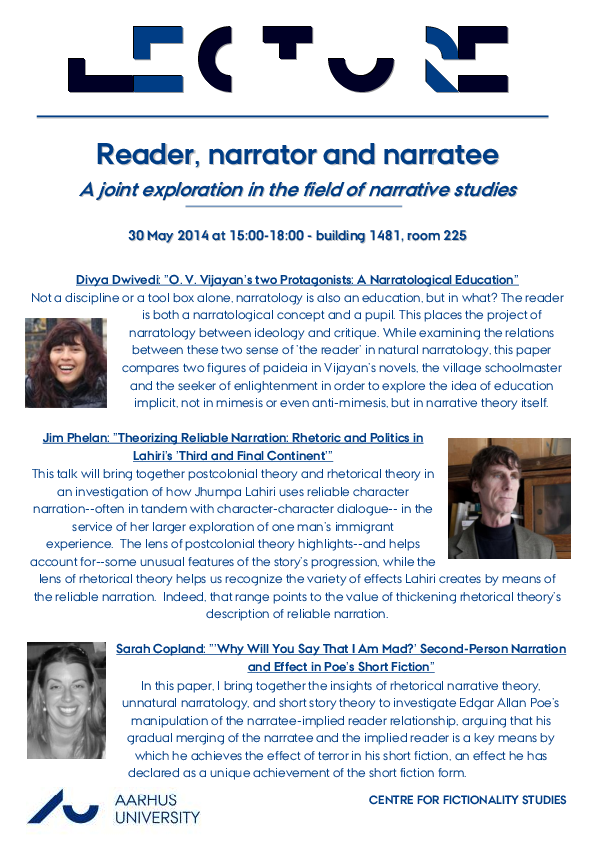Reader, narrator, and narratee
A joint exploration in the field of narrative studies
Info about event
Time
Location
Building 1481, room 225
Organizer

Divya Dwivedi: "O. V. Vijayan's two Protagonists: A Narratological Education"
Not a discipline or a tool box alone, narratology is also an education, but in what? The reader is both a narratological concept and a pupil. This places the project of narratology between ideology and critique. While examining the relations between these two sense of 'the reader' in natural narratology, this paper compares two figures of paideia in Vijayan's novels, the village schoolmaster and the seeker of enlightenment in order to explore the idea of education implicit, not in mimesis or even anti-mimesis, but in narrative theory itself.
Jim Phelan: "Theorizing Reliable Narration: Rhetoric and Politics in Lahiri's 'Third and Final Continent'"
This talk will bring together postcolonial theory and rhetorical theory in an investigation of how Jhumpa Lahiri uses reliable character narration--often in tandem with character-character dialogue-- in the service of her larger exploration of one man's immigrant experience. The lens of postcolonial theory highlights--and helps account for--some unusual features of the story's progression, while the lens of rhetorical theory helps us recognize the variety of effects Lahiri creates by means of the reliable narration. Indeed, that range points to the value of thickening rhetorical theory's description of reliable narration.
Sarah Copland: "'Why Will You Say That I Am Mad?' Second-Person Narration and Effect in Poe’s Short Fiction"
In this paper, I bring together the insights of rhetorical narrative theory, unnatural narratology, and short story theory to investigate Edgar Allan Poe’s manipulation of the narratee-implied reader relationship, arguing that his gradual merging of the narratee and the implied reader is a key means by which he achieves the effect of terror in his short fiction, an effect he has declared as a unique achievement of the short fiction form.
